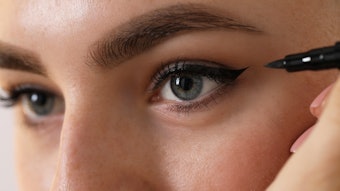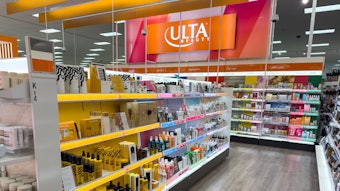Joao Carlos Basilio da Silva, President, ABIHPEC
Leadership is a quality that is marked by many easily definable traits, but rare is the leader who exudes certain intangibles that pronounce their leadership without the individual uttering a word. João Carlos Basilio da Silva, president of the Brazilian Association of the Cosmetic, Toiletry & Fragrance Industry (ABIHPEC), is a leader whose presence alone communicates steadfast action and confidence. Since first assuming his role with ABIHPEC in 1995, Brazil’s cosmetics and toiletries industry has grown to a value of $22 billion in 2007 to become the third largest global market, with the country achieving double-digit growth annually from 2002–2007, an average growth of 24% a year. As an advocate, Silva has helped foster a unification of the industry and a closer working relationship with the Brazilian government—resulting in the industry’s R$600 million investment in the production technologies and the government’s reconsideration of tax and trade policies on personal care. ABIHPEC expects beauty exports to have reached $650 million in 2008, but Silva’s ongoing work includes efforts to untangle bureaucracy within Brazil and bring harmony to trade and regulations that have an impact across Latin America as a whole.
Silva also created the first Brazilian trade show dedicated to the cosmetic, toiletry and fragrance industries, and conceived and established the Brazilian Pavilion at Cosmoprof Bologna. Within this vein, his ongoing roles—which also include president of the Association of Cosmetic Manufacturers of São Paulo State, vice president of the Center of Industries of São Paulo State, and positions within packaging, technology and trade organizations—continue to make Brazil and the impact of its beauty industry relevant and game-changing to the market as a whole.
Jane Hertzmark Hudis, President, BeautyBank, Origins and Ojon
A senior member of The Estée Lauder Companies’ management team, Jane Hertzmark Hudis joined the company in 1986, holding various positions, including senior vice president and general manager, Donna Karan Cosmetics; and senior vice president of marketing and sales, Prescriptives. “Throughout my 23-year career at The Esteé Lauder Companies I have been involved in every aspect of the business, including marketing, sales, product development, training, merchandising and creative,” Hudis says. “My greatest lesson as a marketer was in moving to San Francisco to be regional sales manager for Prescriptives. It was there that I learned the business from 360 degrees.” In 2003, Hudis founded The Estée Lauder Companies’ entrepreneurial arm, BeautyBank. As its president, she has pursued non-traditional distribution for unique brand concepts. In July 2008, Hudis launched BeautyBank’s newest prestige brand, Eyes by Design, sold exclusively through home television retailer HSN. “BeautyBank is doing very well,” Hudis says. “We have tapped into a value-conscious consumer on a global basis and have given her exciting new products at the right price point, where she likes to shop. We are offering a luxury experience at more affordable price points. This is what the modern shopping experience is all about.” For her business savvy, CEW presented her with a 2008 Achiever Award.
However, Hudis not only leads the BeautyBank think tank, but also pairs her time with two other brands—Ojon, hair and skin care products sourced from Central American rain forests that she has overseen since December 2007; and most recently, Origins, prestige beauty in the natural and organic segment. “You need to have vision and passion for what you do in order to be a great business leader,” Hudis says. “One must lead by example. When recruiting, it’s essential to recognize talent that reflects your mission, and you must assemble a team that can work together toward a common goal.” For Hudis, communication is the key to having developed BeautyBank’s current working model and creative team, focusing not only on communication, but also on innovation and speed-to-market. “Global relevance is achieved,” she adds, “by working closely with our markets to develop new brand concepts or tailoring existing concepts based on the market needs and opportunities.” Hudis’ goal is to further secure BeautyBank on the global playing field.
Mike Bloom, Senior Vice President, Merchandising, CVS/Pharmacy
In November 2008, CVS/Pharmacy, the retail division of CVS Caremark Corporation, opened its inaugural Beauty 360 store on Dupont Circle in Washington, D.C. Led by Mike Bloom, the Beauty 360 concept is the first of its kind for the retailer with more than 6,200 U.S. drugstore locations. The new upscale venue offers customer-focused services for prestige and niche beauty brands, including Zirh, Me Bath, Ahava, Payot, Supersmile, Japonesque, StriVectin, Borba, Freeze 24/7 and more from the skin care, cosmetics, men’s grooming and fragrance markets.
“This new concept will redefine the beauty shopping experience by providing customers with access to prestige and niche beauty brands as well as an unparalleled level of service,” Bloom says.
Bloom, who has more than 25 years of retail experience, joined CVS in 1991. Since then, he has served in various merchandising positions and was promoted to senior vice president in 2003. In the position, he oversees the company’s multibillion and multimillion dollar categories, including health care, beauty, photo, consumables, private label, general merchandise and visual merchandising. In 2007, annual revenues for CVS Caremark Corporation amounted to $76.3 billion. Beauty 360 promises to boost revenue even further. To save shoppers time, signature services feature mini-manicures, express facials, hand massages and makeup application consultations in stores adjacent to CVS/Pharmacy locations. The corporation will unveil additional Beauty 360 pilot stores in 2009.
Lydie Hayek-Rocque, Vice President, Commerce & Marketing; Jean Pierre Guay, President, Garraud Paris
In the 1950s, French stylist Rene Garraud launched an eponymous line of skin care and makeup in an effort to bring total beauty to his customers. Today, Garraud Paris enjoys a following among French beauty professionals, and a new management team is working to expose this legacy to a global audience. Under the direction of Jean Pierre Guay, president, and Lydie Hayek-Rocque, vice president commerce and marketing, the brand has been restructured for the modern market while remaining true to its heritage.
At the root of the reorganization is a marketing strategy allowing maximum flexibility for retailers and win-win partnerships with the professional market. “This approach is the cornerstone of our corporate philosophy,” say Guay and Hayek-Rocque, “as breaking into new territory is not an easy task given the complexity of today’s ever-evolving distribution profiles.” The effort to take Garraud Paris beyond its current borders is being undertaken by a multicultural and multigenerational team.
The line is organized around five categories including antiaging, prestige skin care, hydration, sensitive skin care, intense nutrition and men’s care. New to the line in 2008 were Garraud Evasion, skin care inspired by ancestral beauty rituals from around the world; Garraud Parfumer, offering three fragrances developed by Drom Fragrances International, in bottles designed by Alain De Mourgues; and Garraud Lab, an antiaging, nutricosmetic dietary supplement with marine collagen.
The goal of expanding distribution to a global audience takes a step closer to fulfillment when Garraud Paris becomes available in the U.S. and elsewhere in 2009. “We will continue product development in the domain of nutricosmetics and in our endeavor to bring professional spa products—our legacy—to consumers who expect the best of French savoir faire, quality, integrity and product performance,” say Guay and Hayek-Rocque.
Linda Walker, Founder and CEO, CoValence
Founded in the late 1980s as a scientific-based professional skin care manufacturing company, CoValence has grown to become an ingredient technology leader under the guidance of founder and CEO Linda Walker. The success of this evolution was fostered, in part, by two underlying initiatives: Understand and adopt the philosophy of the client, and constant focus on forward-thinking strategies.
“The success of CoValence and our clients does not lie with just me. It is a collaborative effort with every one of our employees,” she says. “We have had brilliant ideas from individuals in every department. If the idea will help our clients, we will implement it. We will continue to put our clients first and, ultimately, give them a competitive edge—which everyone rightfully deserves.”
She understands that a client’s competitive edge is forged in partnership and by assuming the onus of developing products that suit the philosophy of the client. For example, it means understanding whether clients are science-driven or have a natural focus, and then guiding them to choices that best suit their individual philosophies.
“It is up to us, the manufacturer, to diligently research ingredient and marketing trends in order to understand the concept of a product so our clients can concentrate on their strengths,” she says. “In an effort to give our clients a big competitive edge, we have added our own proprietary ingredient development initiative. We understand that, as a personal care contract and private label manufacturer, the path toward success is to continue with our new technology research and implementation, as well as perfect all of our services that set us apart from other manufacturers.”(Note: In 2008, the company was a finalist for Cosmetics & Toiletries magazine’s Best New Technology award for the creation of Mitoprotect.)
Robert Dowdell, Contract Manufacturing, Sales Director, Dermazone Solutions
With 40 years of experience across two continents, Robert (Bob) Dowdell has been witness to a sea of change in the industry. After a stint as quality manager for the U.K. operation of Charles of the Ritz Cosmetics in the 1970s, Dowdell managed the technical group of The Body Shop International Plc, reporting directly to Gordon and Anita Roddick. Dowdell cites those 16 years as both rewarding and life-changing. The exposure to meteoric year-on-year growth (the company achieved global sales of $500 million by the time Dowdell left) and experience in managing product development, manufacturing and quality at overseas manufacturing sites provided a reference point for future initiatives with which he would be involved.
In 2004, Dowdell met Deborah Duffey, the president of Dermazone Solutions, and joined the company when it moved to a pharmaceutical standard manufacturing facility. His work there has included the development of dermaCM, the company’s contract manufacturing and private label division, and he has become a wave in the industry’s sea of change with his role in the company’s development of a proprietary nanosphere delivery system—a sustained-release and delivery mechanism that has immediate ramifications for the beauty, pharmaceutical and beverage industries and ongoing ramifications as those fields continue to merge as cosmeceuticals and nutraceuticals.
“I have been fortunate to be involved in some very interesting companies in my career,” Dowdell says. “But two are very close to my heart—one being The Body Shop International in the U.K. and the other Dermazone Solutions. And for very similar reasons: excitement, professionalism and ethics.”
Kumar Ramani, President; Ujala Ghauri, Product Developer, Harvey Prince & Co.
For many beauty breakthroughs, innovation occurs from not just one individual’s creative laboring but from a team effort. That’s how the new women’s fragrance, Ageless, came into existence. Science, research and a drive to revive the prestige specialty market inspired Kumar Ramani, founder of Ageless Fantasy Inc., to lead a group at Harvey Prince & Co., including product developer Ujala Ghauri, who was “with it since the beginning,” to create the first women’s perfume to claim antiaging benefits. Launched in 2008 in the U.S., Europe and Asia, the brand’s stock sold out in less than six minutes during its November 2008 QVC debut, offering a proprietary citrus blend of pink grapefruit, mango, pomegranate, apple, jasmine, cherry blossom, musk and other youthful aromas in a tall, rectangular glass bottle.
“Our goal was to find a fragrance that women and men would associate with youth,” says Ramani, whose final formula, created in association with Stephanie Messing, consultant at Ungerer & Company, claims to make women smell three to eight years younger. The trick is not to mask a woman’s scent, he says, but to neutralize body odors caused by diet, illness and age. By neutralizing the noneal chemical produced by the body as it ages, which causes the perceived smell of a chronologically older woman, a clinical study discovered the tropical and citrus notes that cut the perceived age significantly. Now sold in high-end U.S. boutiques, U.K. Harvey Nichols stores and Asian department stores, Ageless is the first of what Ramani says could be a line of groundbreaking formulas, including a similar fragrance for men and a fragrance targeted for women in their 30s, determined globally by consumers’ needs. “We’re getting real results on a massive scale, not with focus groups,” says Ramani. “When we say this fragrance was designed by millions of people, we mean it!”
Montgomery Taylor, Founder, Montgomery Taylor Fragrances
An apt example of why this industry is exciting and maintains its vitality, Montgomery Taylor leveraged years of developing retail images as a store planner/designer, combined his experience with a ranging background of interests and relied on a bit of inspiration to bring Ambra di Venezia to the niche fragrance market.
Trained in architecture at Princeton University, Taylor worked for Young & Rubicam Brands, where he learned about marketing and sending brands into the world. He was then hired by Lancôme to create designs for Macy’s counters, among other retailers. There, he was introduced to products as a tangent. “Marketing would survey employees,” he says. “Then, I started going to product training, and was really intrigued by products.” Taylor’s interests brought him to Venice, Italy, where he studied glassblowing. The amber skies that greeted him after a day working with molten glass was the canopy that he felt linked him to the artisans who had focused on their art and techniques for centuries. Back in New York, he shared this experience with perfumer Rayda Vega, and set about creating a fragrance that captured his daily Italian experience.
“I knocked on doors to pitch bottles and fragrances. I went into it with a lot of naiveté,” he says. “What’s changed (since the initial launch in 1998) are that there are many more little guys. That’s a positive. Together, we have made a mark, and are recognized by the industry and consumers—and they do like what we do. They like finding something unique.”
Nikos Koutsianas, Founder, Apivita
Basing his in-house R&D approach on ancient Greek holistic philosophy, as well as his experience as a pharmacist and a beekeeper, Apivita’s founder, Nikos Koutsianas, has produced natural personal care products since the 1970s—long before the world embraced the trend. Sourcing most of his raw ingredients from the local countryside, he relied on Greece’s abundant flora—more than 5,000 plants, including sea fennel and dittany of Crete—and his bee products, including organic honey, royal jelly, beeswax and propolis, to develop the 50,000 formulas that have made Apivita a success in more than 3,000 Greek pharmacies and spas, and in new flagship stores in Hong Kong and beyond.
“Natural and organic products are now the fastest-growing category of the cosmetics industry with an annual rate of development of 17%,” Koutsianas says. “There are two ways to create such effective products: science and nature. The brands that succeed in combining both to deliver results will be head of the class. Apivita launched a line of bespoke cosmetics as early as in 1990 and is planning to expand it in the future.” The first of such expansions involved the launch of Apivita’s Queen Bee in 2008, a firming serum with royal jelly for mature skin.“We are, however, leaders in shampoos—selling more than 600,000 bottles a year, with a market share close to 40% in Greek pharmacies,” says Koutsianas.
Since formulating Apivita’s first shampoos in his pharmacy lab, Koutsianas’ R&D approach has evolved, but his roots still remain. “Our new ‘go green’ approach includes one of Greece’s first, bio-climate type production plants,” he says. “State-of-the-art filters are used to keep gas emissions as low as possible. Also, a standard unit of biological cleaning uses the water from the liquid waste for the garden around the plant. In addition, solar systems utilize renewable sources of energy and reduce the levels of energy loss. The whole plant is designed to be of low nuisance to the community and hopefully an inspiration for the people toward a more natural way of life.”
The Sabara Family, Beraca
Founded by Ubirajará Sabará in 1956 as a chlorine distributor, Beraca threw its hat into the beauty ring in 1991, distributing jojoba oil. Ten years later, under the guidance of its president, Ulisses Sabará, the company made a strategic decision to make sustainability its business focus and an integral part of its activities—a decision fostered by the Sabará family’s leadership in various corporate positions and adopted by the company as a whole with the goal of making this mind-set the global norm.
“[The mission] began in the 1990s when [Ulisses] was looking for a reliable partner in the Amazon region to supply non-timber goods in an effort to slow its deforestation,” said Daniel Sabará, chief executive, health and personal care division. “At that time, discussions regarding social and environmental issues in the health and personal care market were quite rare. It started with a few people inside the company. Fortunately, today the message of sustainability has spread within the company and is being spread [globally] through its customer and supplier relationships.”
The company’s activities and businesses that could not be aligned with its mission statement were divested, and the mission itself is evaluated on a daily basis—with the impact of day-to-day business on the mission considered before decisions are finalized. And the company encourages the companies it works with to practice this evaluation as well.
“Customers are challenged to review their mind-set to create a virtuous circle of sustainable values and practices,” said Sabará. “It is certainly an ongoing process … to discover ways to maintain and increase the vision every time a new daily challenge is faced.
“We are all stewards of socio-environmental issues. Seed collecting by local communities in the Amazon rain forest, for example, is everyone´s business. We are all responsible for the big picture, which is our planet. That responsibility starts by understanding that, as a consumer or as a organization, we must require from our suppliers and partners a stand on true commitment to sustainability.”
Zein Obagi, MD, Dermatologist and Founder, Zo Skin Health
In the 1980s, Zein Obagi, MD, challenged the norms of traditional skin care by introducing the American Academy of Dermatology to his perspective of skin health via cosmetic dermatology, rather than pathology alone. After putting his name on a line of professional skin care products, he began educating women about ingredients and product usage. Zo Skin Health, his new OTC brand launched in August 2008, sets out to prove, among other things, that moisturizers aren’t necessary when skin cells are functioning properly. “The 11-item product line uses the highest OTC concentration of retinol—10 to 25 times higher than what is commonly found in department store skin care lines,” Obagi says. “In Ossential Radical Night Repair, for example, the time-released, super-charged retinol attaches to cells where the body converts it to retinoic acid that increases collagen production in the dermis. High concentrations and a continuous supply of retinol are the best way to keep skin vital, healthy and youthful.”
Sold online, at select Nordstrom stores and at The Studio at Fred Segal, Zo Skin Health addresses the antiaging concerns of the prestige consumer. “People want healthy skin, which I define as smooth; tolerant; even-toned; firm and tight, and free of disease,” Obagi says. “Zo Skin Health products deliver the needed punch by awakening skin cells and restoring their vitality and ability to regenerate and renew themselves.”
In his career, Obagi has trained more than 7,000 dermatologists in the U.S. and many more in Asia, Europe, the Middle East and Africa. He also developed the blue peel, a method that allows physicians to control the depth of a skin peel, and is the author of Obagi Skin Health Restoration and Rejuvenation, 1999.
“I don’t think of myself as a business leader,” he concludes. “I’m not focused on the business as much as I am the products, the technology and the science behind them.”
Alisa Marie Beyer, Founder and Creative Director, The Benchmarking Company
Called a “serial entrepreneur,” Alisa Marie Beyer’s enterprising nature has proven a boon to the industry as a whole. After building three successful companies, she resolved to bring her built-from-scratch expertise to the beauty industry and launched The Benchmarking Company in 2006. The endeavor involves interviewing thousands of women annually—52,000 women were surveyed in 2008—to discover what they are doing, thinking, feeling and buying, and what they want from their beauty brands. This information is then translated so that companies understand what it takes to gain customer attention, achieve brand loyalty and build a beauty business that works. The focus groups, surveys, lectures, branding boot camps and published reports continue to be game-changing reporting that has an impact beyond the company’s own clients, and the fact that her professional career has centered on women—built on a foundation of dedication to and investment in women and business—translates into a insight difficult to rival.
Tim Schaeffer, Founder, Depth Body LLC
Tim Schaeffer LEFT his work as a marine biologist to create natural personal care products, but he didn’t leave the sea very far behind. He launched Depth, a body care line including body wash, hand soap, hair care and shave cream, in early 2008, to share his love of marine botanicals and their therapeutic benefits. He says response has been enthusiastic, adding “We believe consumers appreciate Depth’s balance of design, performance and value.” A portion of every sale supports Camp SEA Lab, a nonprofit camp aimed at bringing a love and respect of the sea to underserved children.
Judges in the 2008 Fragranced Product Awards named Depth and Schaeffer Marketer of the Year citing use of eco-sensitive packaging and ingredients, corporate responsibility, and the amazing scents made from essential oils and isolates.
The line is 70% organic and all products contain 100% natural aroma blends. Further, they comply with the Whole Foods Premium Body Care standard. They are packaged in bottles shaped like the blade of Pacific Ocean Giant Kelp that are made from recycled and recyclable materials and printed with silk-screened labels to reduce waste.
So how do you top all that’s happened in just the first year? “The next [products] will go beyond natural and organic and into the more encompassing concept of sustainability,” says Schaeffer. “Moreover, these brands will offer a better value than their predecessors.” As for Schaefer himself, continuing to grow Depth is his only plan.
David Frederick, Chief Engagement Officer, Alive Idea Media Group
In the not too distant past, outlets from which marketers could share their stories were fairly limited—print, TV, radio—and control of the message was almost exclusively wielded by marketers. Today, there seems to be no limit to marketing outlets, and the messages are free-form soon after they are released to the world—with consumers avidly going beyond participation in brand stories and, instead, reshaping them. It’s easy to be overwhelmed, regardless of whether you’re the one bombarded with messages competing for attention or looking for the magic formula that allows your message to stand apart. Within this storm stands David Frederick, whose reassuring and plain spoken message maps marketing’s evolution and provides the compass points for marketers to follow.
As director of living media at Coty Beauty, Frederick revolutionized the way the company marketed its products to the consumer, bringing Jennifer Lopez, Sarah Jessica Parker, Gwen Stefani, Marc Jacobs, Vera Wang and Rimmel London brands to life via non-traditional mediums and integrated campaigns. As the chief engagement officer at Alive Idea Media Group, he has worked to cultivate consumer relationships that go beyond traditional media by embracing creative and forward-looking ways to connect brands and consumers through experiences that create unique emotional connections and inspire meaningful, two-way conversations.
Lyn Kirby, President & CEO, Ulta Salon, Cosmetics & Fragrance, Inc.
During the ongoing U.S. economic recession, expanding business by opening new stores is almost unheard of. However, Ulta Salon, Cosmetics & Fragrance, Inc. has been able to rise above the challenges posed by tighter consumer wallets.
Under the leadership of Lyn Kirby, the company has transformed from the discount beauty retailer it was when it debuted in 1990 to the dual beauty superstore and specialty store it is today. Kirby has led Ulta into expansion since 1999, most recently by spearheading the grand opening of its 301st store on State Street in downtown Chicago—the first four-tiered, 18,000 sq ft prototype of its kind. The launch is part of Kirby’s long-term growth plan to more than double Ulta’s ownership to 1,000 stores in the next five years as it strives to become a billion dollar beauty business. The plan also includes expanding store sizes by up to 25%, developing more strategic alliances with major salon brands and learning from the outcome of the Chicago store prototype.
“Our passion is esthetics, escape, education and entertainment—the core of our consumer experience,” Kirby says, “and it’s what is getting us through this tough economy.” With Kirby at the helm, Ulta remains an innovative retail concept, having launched an e-commerce Web site, featuring 12,000 SKUs and 11 microsites in November 2007, which she says could provide more than 10% of Ulta’s business in the future. Sales also stay consistent thanks to the company’s “superstore” attributes: off-mall locations; intense marketing campaigns through direct mail, newspaper inserts and e-mail blasts; and value propositions that support a customer loyalty program.
“We attribute our ongoing success in a difficult economy to our proven marketing strategy, solid operational execution and the beauty category, which is more resilient than many retail categories,” Kirby says. “We are in great shape in this economy, and we believe it will be hard for our competition to follow us.”
Peter Kelly, Co-founder & Director, Taxi Cosmetics London Ltd.
Creativity, adaptability and resilience are important traits for entrepreneurs in any industry, and the beauty business has plenty of success stories to prove it. Peter Kelly has worked in the industry for more than 20 years, holding marketing and development positions with a number of contract manufacturers. In 2004, he took the plunge into entrepreneurship when he and his wife, Jane Williamson, created a British beauty brand with an identity tied to “the unsurpassed history and trends of the talented and enviable London fashion scene.” They chose the name Taxi London because the word taxi is understood around the world and connects with the brand’s ‘makeup on the move’ philosophy.
Kelly’s original plan was to target China for product distribution, but that goal met with some resistance. “Most distributors and retailers wanted to know we were anchored and successful in our own home market before they listed us,” says Kelly, “so we have re-thought our strategy, concentrated upon building the brand in the U.K. and will look again at export in 2009.” Taxi London Ltd currently is available in 51 U.K. Superdrug outlets and online.
A men’s range launched this year has enjoyed some publicity for its ‘guyliner’ and ‘manscara’ products. But Kelly says the best selling products right now are in the Taxipure mineral makeup line. “The European market has been aware of minerals for a while but only in the last six months have they become widely available,” says Kelly. “We have positioned Taxipure at competitive price points packaged in components that have built-in brushes and applicators in line with our … philosophy.” With Kelly at the wheel, Taxi London is on the move.
Lakshmi Prakash, PhD, Vice President of Innovation & Business Development, Sabinsa Corporation
Knowledge is a valuable commodity, and those willing to impart knowledge strengthen an industry and seed its advancement. Lakshmi Prakash, PhD, has leveraged a background in food technology to become an important voice as nutraceuticals and cosmeceuticals gain significance in the beauty industry. With more than 25 years of combined research and management experience—including head of the Department of Food Technology at Shreemati Nathibai Damodar Thackersey Women’s University, Mumbai, India, and project manager at the Center for Advanced Food Technology, Rutgers University (where she worked to facilitate research collaborations between corporations and academia)—she is an authority on the science of herbal ingredients, their application and function claims.
At Sabinsa, Prakash’s responsibilities include identifying and developing innovative health applications, delivery systems and intellectual property pertaining to natural actives and nutritional raw materials, and this work, in combination with her food background, was instrumental to the launch of Sabinsa’s GRAS ingredients. And to the benefit of the industry as a whole, her findings and practical research are often shared through peer-reviewed journals and trade publications, making her a partner of many.
Beauty Bloggers, Anywhere, Anytime
While there’s some debate going on these days about just how much influence social media and its participants really have over consumer buying decisions, there’s no doubt about beauty bloggers’ passion for product; their willingness to talk about it with friends, relatives and complete strangers; and their growing business savvy. A lot of beauty blogs start out simply, as homegrown sites produced by girls and women who are admittedly crazy about beauty products. And many stay that way. On the other end of the spectrum are blogs that have grown into professionally designed endeavors complete with advertising and their own “Best of” awards. They’re organized, too, with sites such as Beauty Blog Network, founded by makeup artist Elke Von Freudenberg, who believed beauty needed a larger forum.
At its best, blogging delivers beauty without borders. From A Touch of Blusher in the UK, to Jack and Hill: A Beauty Blog in the U.S., to Rouge Deluxe in Singapore, beauty bloggers share their passion for products with anyone who cares to read their posts—influencing others sometimes just comes with the territory. A comment on a U.K. blogger’s post about Japanese brands said, “I love it when you review Japanese products so I know what to buy and what not to.” The impact may never be equal to an ad in Vogue, but large numbers of consumers seem to relate far better to a girly, bright pink blog created by someone just like them than to a printed page. At the end of the day, blogs and bloggers are one more way that product reviews and opinions are generated and shared in this fast-paced, multimedia world.










